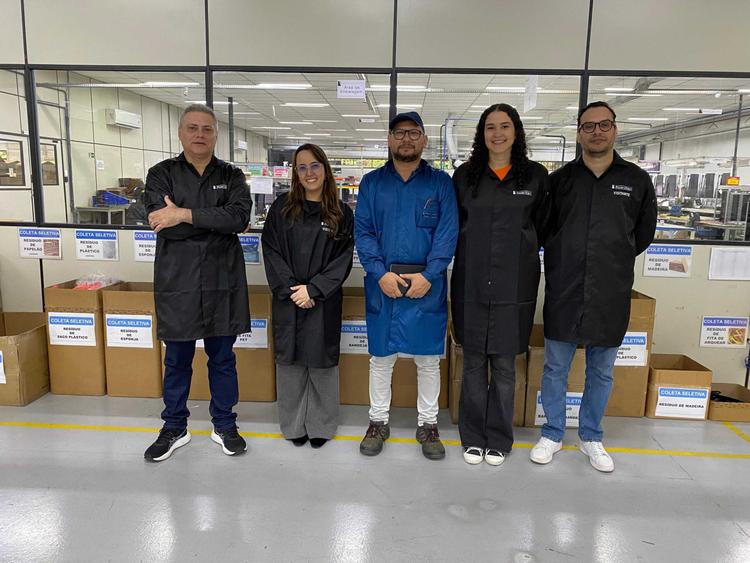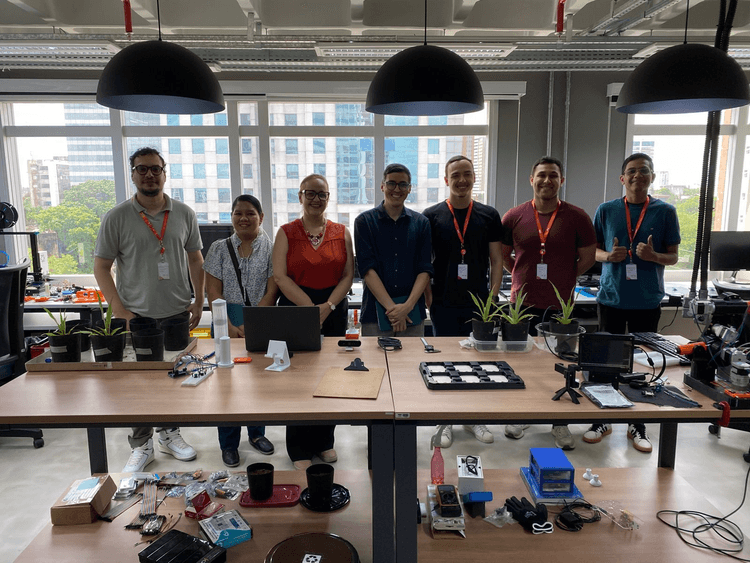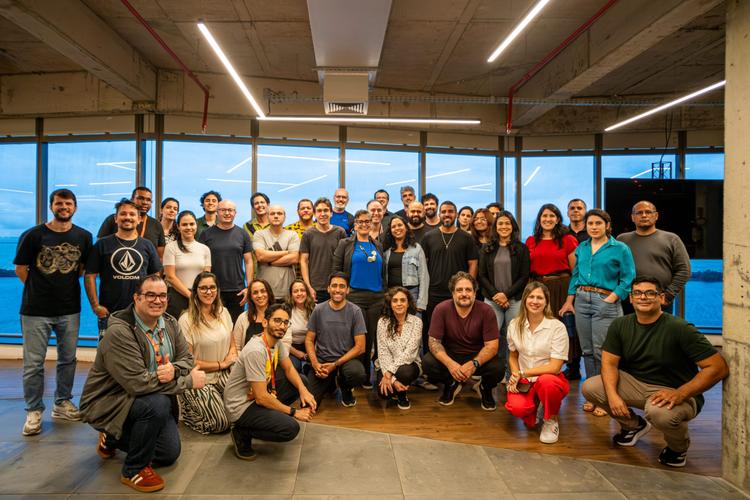3 mins to read
CESAR .
Publicado em: 15 de agosto de 2025
The Port of Suape Sets National Benchmark in Digitalization and Logistics Automation with a CESAR-Created Solution

Handling over one billion tons of cargo in 2024, Brazil’s port logistics industry involves a complex chain that spans from maritime traffic to storage management and intermodal transitions. In this challenging environment, process digitalization has become an increasingly urgent need.
To address this scenario, CESAR, in partnership with the Port of Suape — one of Brazil’s largest and most strategic port complexes, recognized for its role in driving national and international trade — developed an integrated port operations management system that enhances operational efficiency and drives innovation across the entire logistics chain.
In operation since late 2023, the platform has already delivered significant results, such as a 50% average reduction in operational activity time.
How PMIS Transforms Port Operations
The system automates critical tasks in port operations and presents strategic information through dashboards, enabling faster, data-driven analysis and decision-making. It also ensures full compliance with regulatory authorities.
“The impact was concrete: a financial gain of BRL 1.2 million per year for Suape, in addition to reducing approximately 2,650 tons of annual emissions from vessels.” — Adriano Gomes, Project Manager II at CESAR.
Built to Fit the Operational Reality of the Port of Suape
The project was developed using agile methodologies and user-centered design, fully adapted to the port’s operational context.
The result is a customized system capable of:
- Eliminating uncertainties;
- Reducing costs;
- Minimizing human effort in repetitive tasks.
Operational and Sustainability Impacts
According to Higo Vinicius da Costa Nunes, Port Operations Coordinator at the Port of Suape:
“We successfully unified legacy systems and control spreadsheets, centralizing the entire operational cycle of the vessel — from scheduling to billing and the consolidation of data for ANTAQ’s XML (Brazilian National Waterway Transportation Agency).”
Key results since implementation:
- Over 3,000 dockings recorded with real-time monitoring;
- Around 500,000 containers handled;
- Fivefold increase in data traffic volume;
- Strong contribution to reducing paper usage.
“PMIS centralized all operational stages of the port, replacing spreadsheets and isolated systems, and integrating the complete vessel cycle. Through API communication, the system connects to terminals and regulatory authorities, promoting efficiency and transparency. A key milestone was the integration of PMIS with the federal ‘Porto Sem Papel’ (Paperless Port) system, as it became the first port system to fully integrate with the new APIs, enabling real-time information exchange.” — Adriana Martin, Director of Innovation and Digital Transformation at the Port of Suape Industrial Complex.
Brazilian Port Sector Overview
- Responsible for over 90% of the country’s foreign trade;
- USD 5 trillion in total value of transported goods;
- 1.3 billion tons handled in 2024, according to ANTAQ.
At CESAR, we go beyond delivering software — we create robust, tailor-made technological solutions that connect strategy, innovation, and cutting-edge engineering. From advanced automation and data intelligence to system integration and sustainability-driven innovation, we partner with organizations to rethink operations, accelerate efficiency, and set new performance benchmarks. Talk to one of our consultants.
Discover how CESAR’s technology can transform your operations — from ports to any complex logistics chain. Let’s talk about building your next performance breakthrough.
You may also like

Boardtec: Automação do controle de paradas para migrar de registro manual a realtime

CBA: Transformando dados em sustentabilidade com monitoramento do solo em Manaus

UCB Power: Da inspeção manual à inspeção inteligente com visão computacional

